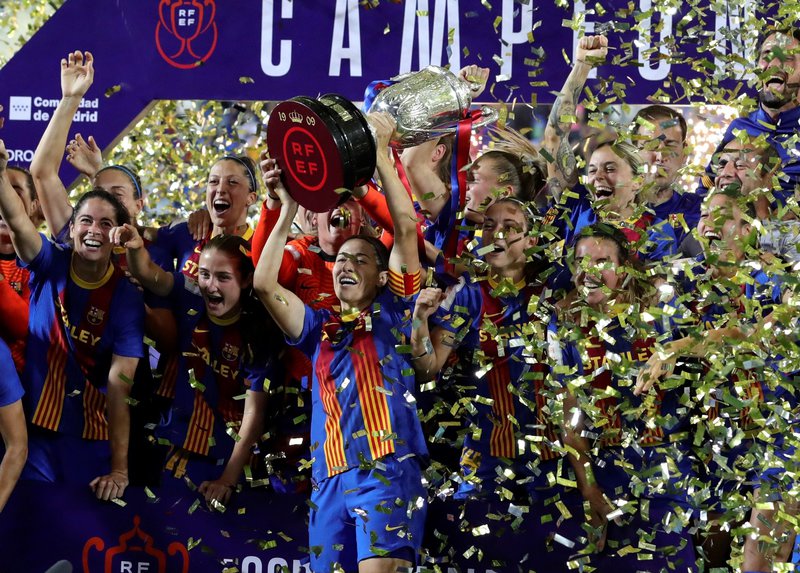THE LAST WORD
It’s a woman’s world
Despite the coronavirus pandemic that has plagued (pun intended) football, it’s turned out to be a fantastic season for Barça. Of course, I’m not referring to Ronald Koeman’s shower of overpaid underachievers, I’m talking about the club’s female team, which won a historic treble of league title, Champions League and Copa de la Reina to deservedly put them top of the headlines.
I won’t go into the details of how Barça’s women footballers have shown up their male counterparts this season, but you can get the lowdown in Barney Griffiths football column on page 42. However, I will share a few observations, entirely unsolicited though they may be.
At this point, I’d say there is general acceptance that the contribution women have made and make to society needs to be boosted and properly recognised after centuries of being relegated to the background. We’ve seen many initiatives and efforts to do just this in recent decades, some of them even enshrined in legislation. To cite a very recent example of how women as a group have gained ground in the status and influence to which they have a right can be seen in the fact that there’s a majority of women in the new Catalan cabinet, and that one of the stated aims of the executive is “feminism”, whatever that means, although I think we can assume it means a commitment to gender equality.
Anyway, the reason why I love so much what Barcelona Femeni, as they are called, have done is that they have done it on the back of hard work and talent. They have grabbed the headlines thanks to the effort they put in on the football pitch and have earned the right to be called champions. Talk about breaking the glass ceiling! And what’s more in a sport that has long been stifled by a misplaced identification with masculinity. How many openly gay players are there, for example?
Ahead of the 2019–20 season, the female section of my team Everton dropped the word Ladies from their name and are now simply called Everton. Meanwhile, in March in the UK, it was announced that the Women’s Super League (WSL) had signed a broadcasting deal with Sky and the BBC - two of the country’s biggest television broadcasters - worth almost 28 million euros over three seasons, the largest commercial agreement in women’s football to date. Another example is the BBC’s coverage of the 2019 Women’s World Cup, which attracted a total viewership of 47% in the UK with a peak of 11.7 million people watching England’s semi-final loss to the United States.
We hear a lot about gender equality, about levelling the playing field and overcoming the patriarchy, but women’s football is actually doing it, organically, and without the need for special treatment or a pat on the head. I’m sure there’s a lesson in there for other sectors of society in which women should play a larger role.
Vicky Losada, the FC Barcelona Femení captain, said after her team’s Champions League win: “Women’s football has grown and it has found itself a place in society, in the media, that means it won’t take a step back now.” I have no doubt that she is right, and that she and her team point the way for achieving true gender equality.

